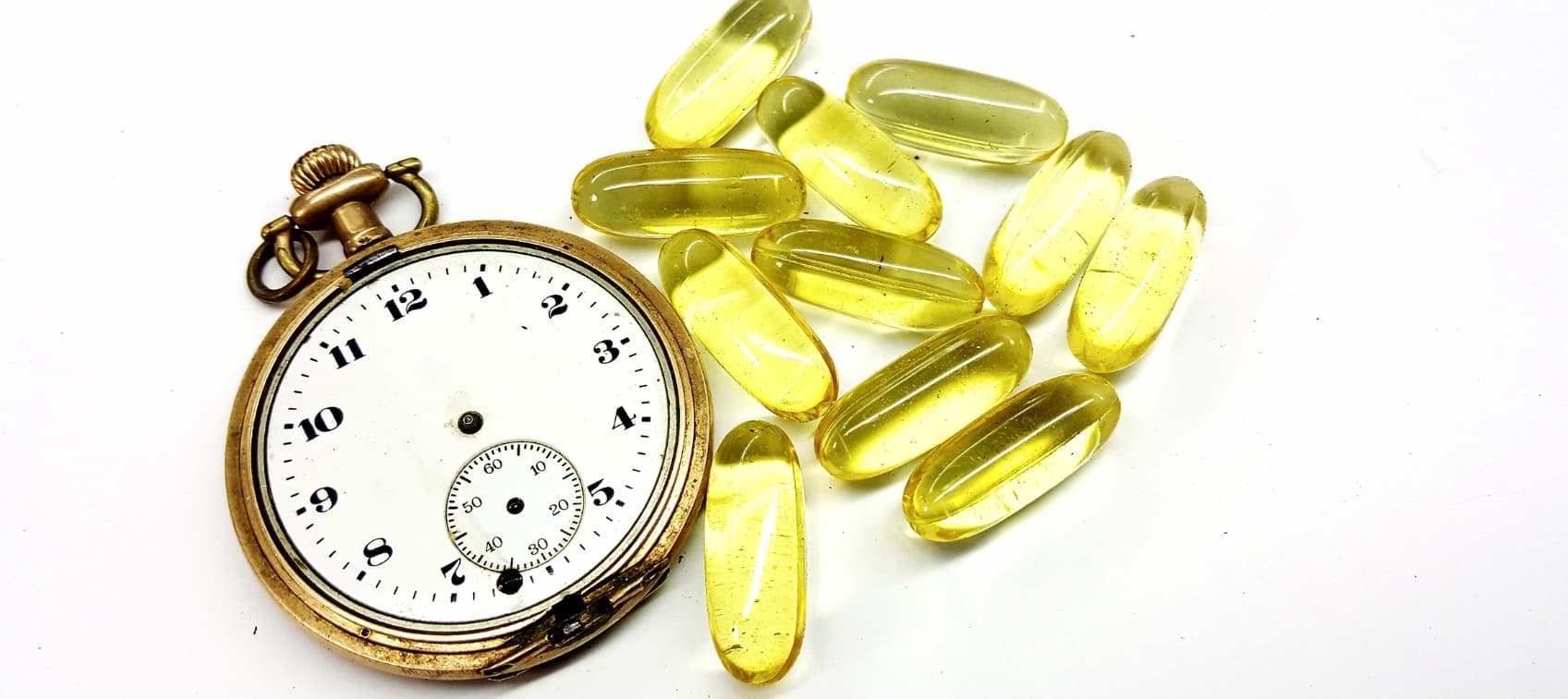
Science is an amazing field. Discovering what works, why it works, when it works, where it works, and how much is the right amount is a process and almost an art. Like most art, it’s easier to appreciate the product than the artist.
An example of this is shown in fish oil capsules. Most of us have heard of fish oil or omega-3 fatty acid. It’s been mainstream for a few decades now, but very few of us know that we have Danish scientists to thank for it.
Biologists, Dr. Jørn Dyerberg and Professor Hans Olaf Bang, discovered the health benefits in the 1970s during a study on the Inuit people of Greenland.
When you think about the geography of the United States, there’s a lot of land. The coastline of the United States is 95,439 miles, and about one-third of the coastline is outside of the lower 48. That means that a good portion of the United States is not conveniently near locations where fish is a common part of the daily diet.
Thanks to research, social media, and advice from doctors, many Americans have begun to increase their fish intake.
However, due to cost, differing palates, and availability, many Americans still consume very little or no seafood. As with most instances where there is a deficit in consumption, there are supplements to help our bodies reach the recommended dosages.
Fish oil does come in supplement form, but you may probably still have questions about it. Let’s look at what fish oil is, signs you’re not getting enough, how it can benefit the human body, how to get more of it in your diet, and the right time to take fish oil.
What is Fish Oil?
Fish oil is one of the most self-explanatory supplements. It is the oil or fat that is extracted from the tissues of fish. As you can imagine, it typically comes from oily fish.
Some examples of these oily fish include:
- Herring
- Tuna
- Mackerel
- Anchovies
Roughly 30% of fish oil consists of omega-3s. The 70% that remains is made up of other fats. Fish oil also typically contains vitamins A and D.
The omega-3 fatty acids provide many health benefits, and the main omega-3s found in fish oil are eicosapentaenoic acid (EPA) and docosahexaenoic acid (DHA).
Plants typically provide an omega-3 known as alpha-linolenic acid (ALA). EPA and DHA acids provide more health benefits than the ALA, but ALA is still an essential fatty acid.
The typical Western diet lacks balance in the ratio of fatty acids, so to offset this distortion of fatty acids between other fats like omega-6s and the healthier omega-3s, supplementation is often the solution.
But, how can you tell if you’re not getting enough of the omega-3 fatty acids?
Signs of Low Omega-3 Levels
If you’re not sure if you’re getting enough fish in your diet, there are telltale signs of a deficit in your omega-3 consumption.
Omega-3s are a “good fat” that you hear described by doctors and nutritionists. People who participate in extremely low-fat diets or consume larger quantities of red meat and poultry may find themselves deficient in this important fat.
Here are common symptoms to discuss with your doctor::
- Dry skin
- Brittle hair
- Thin nails
- Dandruff
- Fatigue
- Trouble sleeping
- Lack of concentration
- Trouble with memory
- Irritability
- Pain in joints
- Cramps in the legs
- Excessive ear wax build-up
- Cardiovascular concerns
- Difficult reproductive system cycles
All of these could be related to other issues, but it is worth exploring with your doctor if you might have an omega-3 deficiency that fish oil could help address.
The Benefits of Fish Oil
So, you’re thinking of adding more fish to your diet or taking a fish oil supplement, but before you do, you should know the benefits you could acquire from your increased fish oil intake.
Here a few of the benefits of healthy levels of omega-3s:
- Heart health support - helps normalize levels of cholesterol, triglycerides, and blood pressure.
- Mental health support - helps to normalize brain functions by providing the essential fatty acids of omega-3s.
- Promote weight loss - when added to proper diet and exercise, fish oil may help with feelings of wellness and health to contribute to weight loss.
- Bone health support - helps contribute to better bone mineral density and may help reduce markers of bone breakdown which can, in turn, help prevent bone diseases.
- Liver function support - helps reduce liver fat.
Our systems need a lot of components that work together to support our overall health. There is no cure-all solution, but omega-3 fatty acids are one of these essential components that help our bodies to function at their best.
How do you get more omega-3s in your diet?
There are natural ways to get omega-3s in your diet through food, but as discussed, this is not typical in a Western diet. Knowing where to look for omega-3s may make it easier for you to incorporate them into your diet more frequently.
Here are some foods that contain omega-3s:
- Mackerel
- Salmon
- Tuna
- Herring
- Oysters
- Sardines
- Anchovies
- Caviar
- Flax seeds
- Chia seeds
- Walnuts
- Soybeans
Something to bear in mind is that the plant-based sources of omega-3s typically don’t contain the two more beneficial acids that are found in fish oils.
A vegan or vegetarian diet may be low in EPA and DHA found in fish oil due to the necessary dietary restrictions. If you’re not getting enough from your traditional diet, you and your doctor may look into using supplements to help your levels reach the desired point.
If you are taking a fish oil supplement, it’s important to know when to take it for the best results.
When is the Best Time to Take Fish Oil?
Fish oil supplements can be taken at any time of the day, according to what works best for you and your routine. Supplementation using fish oil is a more prolonged commitment in order to achieve results.
So, since the benefits are not immediate, there is no right time of day to take them.
It may take several weeks, months, or even years for the levels of fatty acids in the blood to increase from taking fish oil supplements. So, choosing the right time of day for taking your supplements may depend more on side effect avoidance.
One Fish, Two Fish
Taking your fish oil supplement in two smaller doses may help reduce the risk of digestive discomfort like acid build-up that may be associated with taking the supplement.
Splitting your dose between a morning and evening dose can be an effective strategy for reducing acid build-up and making digestion of the supplement easier.
Food is Your Friend
Whether you opt for the two-dose method or stick to taking a single dose, it is wise to take your supplement alongside a meal in order to maximize its absorption by your body. Additionally, it is a good practice to take your fish oil supplement along with a good source of fat. A good source of fat can increase the bioavailability of omega-3 fatty acids to support their effectiveness.
As with dose splitting, taking your supplement with a meal can decrease the risk of digestive discomfort and the effects associated with that. Finding the right schedule for your fish oil supplement is subjective to your personal needs.
Keep It Consistent
Once you’ve found what works for you, you should try to remain consistent with your supplement. Consistency, like with many parts of healthy living, is key to maximizing your potential benefits.
Just as you should strive for consistently healthy eating habits, regular exercise, and a sleep schedule to meet your body’s needs, staying consistent with your fish oil is an important part of taking this supplement. For many, the best way to achieve consistency is to take it at the same time every day.
For example, if you choose the two-dose method, you may want to take your doses first thing in the morning with breakfast and again with your evening meal. However, you may find that taking it with your lunch works better for your digestive system.
When you find what works for you, make it part of your daily routine to maximize your potential benefits.
Summary
Knowing what fish oil is and what it can do for your health can help you determine if it’s time to talk with your physician about supplementing it into your routine.
Examining your diet may help you to recognize a lack of the essential omega-3 fatty acids your body needs or simply an imbalanced ratio between omega-3s and other fatty acids. If you decide to take these supplements, find a time that works with your body and your schedule to help keep you consistent and on the path to improving your health through the benefits of fish oil.


